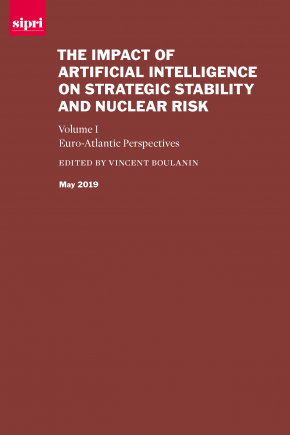The Impact of Artificial Intelligence on Strategic Stability and Nuclear Risk, Volume I, Euro-Atlantic perspectives
This edited volume focuses on the impact on artificial intelligence (AI) on nuclear strategy. It is the first instalment of a trilogy that explores regional perspectives and trends related to the impact that recent advances in AI could have nuclear weapons and doctrines, strategic stability and nuclear risk. It assembles the views of 14 experts from the Euro-Atlantic community on why and how machine learning and autonomy might become the focus of an armed race among nuclear-armed states; and how the adoption of these technologies might impact their calculation of strategic stability and nuclear risk at the regional level and trans-regional level.
Part I. Demystifying artificial intelligence and its military implications
1. Artificial intelligence: a primer
2. The state of artificial intelligence: an engineer’s perspective on autonomous systems
3. Military applications of machine learning and autonomous systems
Part II. Artificial intelligence and nuclear weapons and doctrines: past, present and future
4. Cold war lessons for automation in nuclear weapon systems
5. The future of machine learning and autonomy in nuclear weapon systems
7. Autonomy in Russian nuclear forces
Part III. Artificial intelligence and strategic stability: Euro-Atlantic perspectives
8. Artificial intelligence and nuclear stability
9. Military applications of artificial intelligence: nuclear risk redux
10. The destabilizing prospects of artificial intelligence for nuclear strategy, deterrence and stability
11. The impact of unmanned combat aerial vehicles on strategic stability
12. Autonomy and machine learning at the interface of nuclear weapons, computers and people
13. Mitigating the challenges of nuclear risk while ensuring the benefits of technology
14. Promises and perils of artificial intelligence for strategic stability and nuclear risk management: Euro-Atlantic perspectives


